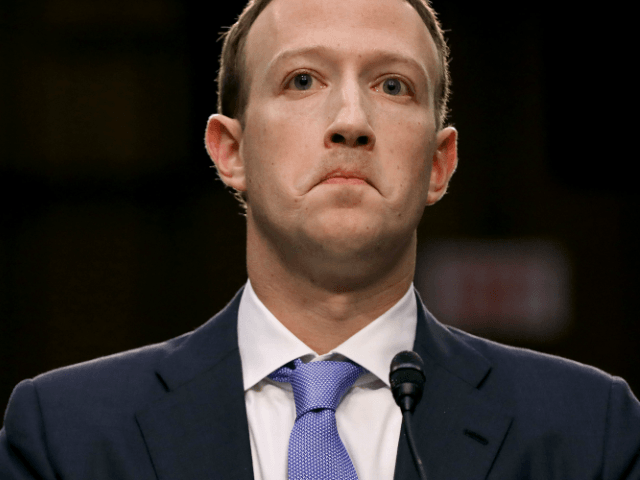FCC commissioner Brandon Carr is urging the agency to take action to curb legal protections for Big Tech companies engaged in political censorship before President Donald Trump leaves office, outlining a plan to do so.
Carr is one of the three majority Republicans on the FCC, alongside chairman Ajit Pai and the recently-confirmed Nathan Simington.
With the confirmation of Simington, the FCC has the votes necessary to move forward on President Trump’s request to reinterpret the rules around Section 230 of the Communications Decency Act, the law that shields tech platforms from legal liability for acts of censorship.
Chairman Ajit Pai supports such a measure, but until Simington was confirmed, lacked the majority needed to move forward.
Now, however, the FCC must deal with a different challenge — changing the rules before Trump leaves office in January. Brendan Carr has outlined a plan to speed up the process.
Ironically, Carr appears to have got the idea from Berin Szóka, an anti-Trump lobbyist for Big Tech who, in a series of tweets, warned that the FCC does indeed have the ability to rush through a Section 230 reinterpretation.
Szóka, who has repeatedly defended Section 230 and the “right” of tech companies to censor, meant his tweets to be a warning — but he may have inadvertently made the case for Carr’s plan.
Via Berin Szóka:
“I’ve been wondering: Why rush Simington onto the FCC (with just 5 months of telecom experience) if Pai doesn’t have time to vote out a #Section230 order anyway?
I now think the FCC could, and likely will, vote out an order without further comment on January 13
Here’s why…
Even most telecom lawyers assume FCC actions fall into two buckets:
1) rulemakings follow NPRMs and public comment and aren’t final until published in the Federal Register
There isn’t time for an NPRM/comments and the Biden FCC could block publication in the FedReg anyway
2) Declaratory orders can resolve adjudicatory disputes, but are only binding on the parties to the proceeding, which won’t do what the Administration (NTIA) has asked the FCC to do here
But there’s actually a third category that the FCC does have time to use here…
An agency can use “interpretive rules” to “advise the public of the agency’s construction of the statutes and rules which it administers
Most of what the NTIA’s petition for rulemaking asks for is exactly that:
—”Interpreting Subsection 230(c)(1) and Its Interaction With Subsection 230(c)(2)”
—”Clarifying Subsection 230(c)(2)”
—”Clarifying Subsection 230(f)(2)”However mistaken I think these proposed “clarifications” are, they’re largely interpretive in nature (though some more granular prescriptive requirements might amount to legislative rules)
N.B., an interpretive rule is an “[a]n agency action that merely interprets a prior statute or regulation, and does not itself purport to impose new obligations or prohibitions or requirements on regulated parties.” National Mining Assn. v. McCarthy, 758 F.3d 243, 251–252 (2014)
On what the Pai FCC has time to do, the key procedural detail here is that the APA (5 USC § 553) exempts interpretive rules from the normal requirements of public comment and federal register publication
The reason for this is simple: like policy statements, “interpretive rules do not have the force and effect of law.” Perez v. Mortg. Bankers Ass’n, 135 S. Ct. 1199, 1208 (2014) Again, an interpretive rule tells the public how the agency understands its own statute or rulesThis report issued by the Administrative Conference (of Federal judges) provides a helpful survey of interpretive rules, how they work in practice, and the complex debate over what deference they get
Rather, the point has always been to shake up how courts apply #Section230 in private litigation—or at least appear to An interpretive order, even without “force of law” could at least deprive websites of the legal certainty that has allowed them to moderate objectionble content
Concretely, as @TechFreedom has warned, NTIA’s proposed changes would mean that #Section230 would no longer protect websites for removing Holocaust Denial, hate speech, most foreign election interference, voter suppression, misinformation, etc
This means that if the FCC does indeed implement a last-minute Section 230 rule change, the plan (and legal justification for moving ahead with it) will have been inadvertently provided to the agency by Szóka — one of Big Tech’s leading defenders in Washington.
Allum Bokhari is the senior technology correspondent at Breitbart News. His new book, #DELETED: Big Tech’s Battle to Erase the Trump Movement and Steal The Election, which contains exclusive interviews with sources inside Google, Facebook, and other tech companies, is currently available for purchase.

COMMENTS
Please let us know if you're having issues with commenting.